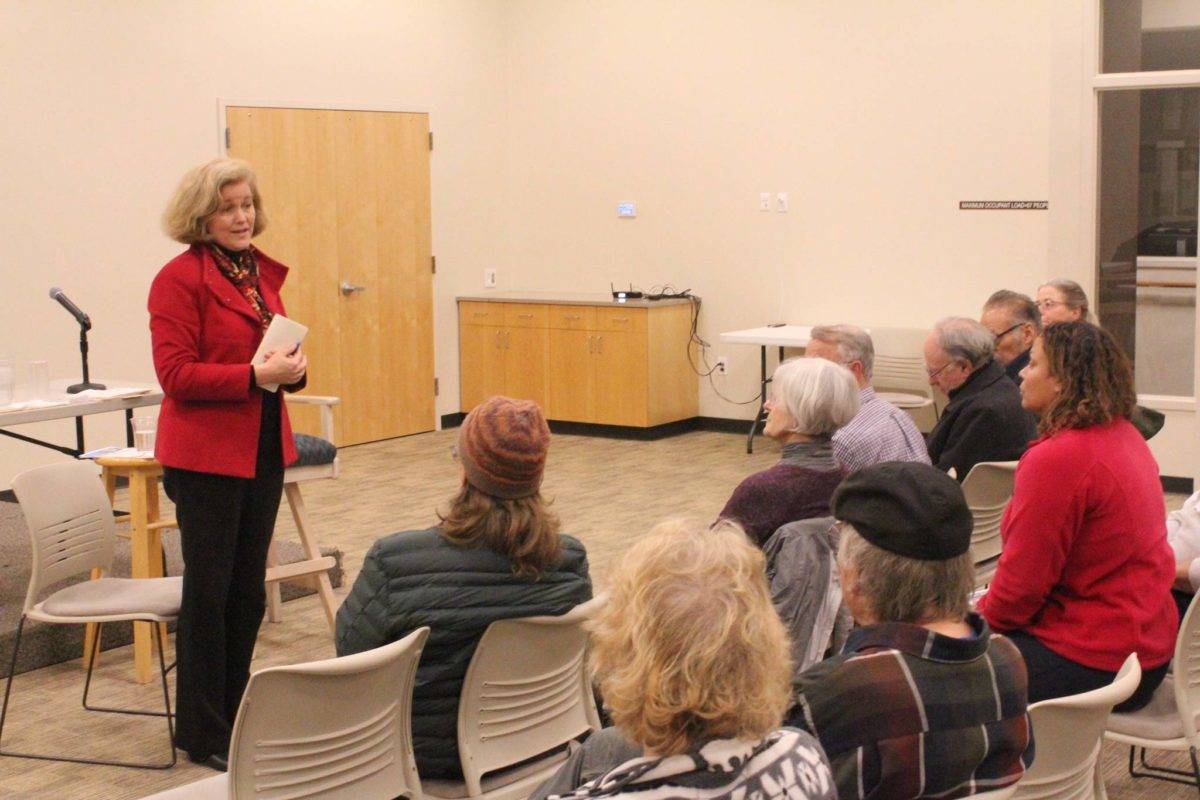Senator Christine Rolfes of Washington’s 23rd Legislative District met with her constituents at the Village Green Community Center in Kingston last week to hear the questions, concerns and hopes of her district’s citizenry, in advance of the coming legislative session, set to convene Jan. 13.
A small, but spirited group of some 17 locals attended the Dec. 2 event; likely, as Rolfes joked, attributable to the Monday night Seahawks game. High on the list of concerns raised by those in attendance were the effects of I-976 — a recently passed initiative that imposes a flat rate for vehicle license tabs — on the state’s transportation funding. According to Rolfes an estimated $478 million will be lost from the state transportation budget as a result.
In response to the passage of the initiative, Gov. Jay Inslee issued a Nov. 7 statement announcing that he was “taking immediate action.”
“I have directed the Washington State Department of Transportation to postpone projects not yet underway,” Inslee said in the statement. “I have also asked other state agencies that receive transportation funding, including the Washington State Patrol and Department of Licensing, to defer non-essential spending as we review impacts.”
While she did say that she doesn’t expect Washington’s infrastructure to crumble, Rolfes acknowledged that residents will have to wait longer for the state to alleviate ever-increasing traffic congestion problems.
“What will happen on the ground is that projects that were not already underway, are delayed, they won’t be underway next year or the following year,” she said. “The congestion problems won’t be solved as quickly as people want.”
An unfortunate alternative that could arise in the coming legislative session, Rolfes said, was the potential for ferry runs to be targeted for cost-saving cuts to the budget.
“That’s where the legislators from this side of the water are going to have to be united,” she said, noting that slashing runs could have a “devastating” impact on her district.
“Maintaining the ferry system is going to be the real [challenge],” she added.
The senator did note that the ferry system can continue to utilize other revenue sources though.
“Under the state constitution, the gas tax can only be used for highway projects, ferries are highway projects,” she explained. “So the ferry system can be funded out of the gas tax.”
Rolfes said she expected another considerable challenge to present itself in the numerous districts that will be fighting to keep their respective transportation projects on track.
“I think it’s going to be natural for all of us to fight to get our projects back on the implementation plan,” Rolfes said. “My goal will be to work with legislators and do what’s fair.”
The senator noted the delay of two key WSDOT projects in Kitsap County: a roundabout in Poulsbo along Highway 305, and a project which sought to widen pedestrian walkways along the Warren Avenue bridge in Bremerton.
“Poulsbo has put together a very comprehensive funding package and if the state backs out, that whole thing could fall apart, so I think that’s a compelling argument to make for that [project],” Rolfes said in defense of the project.
When asked if she felt that a complete revision of the state’s transportation budget seemed achievable in the next session, Rolfes seemed to have some trouble hiding her incredulity.
“It’s more likely that we will agree on what to delay,” she said, clearly choosing her words carefully. “Not on how the state will fund a long-range transportation plan. That’s a much bigger discussion.”


